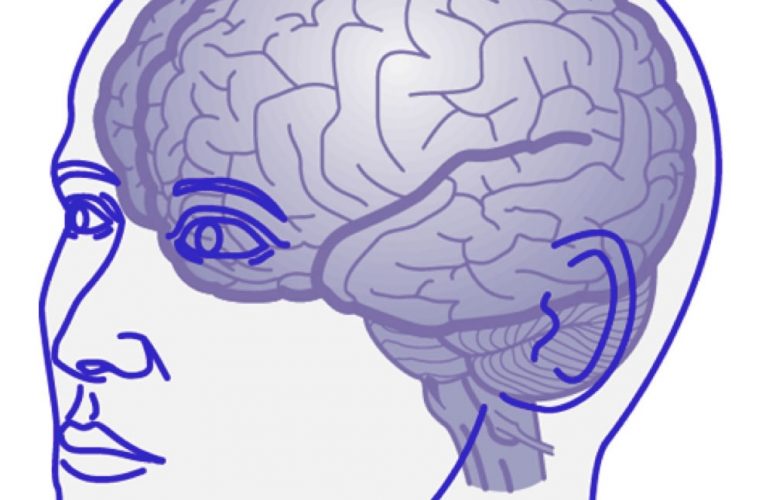What a neuroscientist has learned about being a dad
Fatherhood is wonderful for brain health — starting when you first learn that a new child is expected and on throughout the life of your child.
Brain Change Upon Learning the Big News
A lot of attention gets paid to the changes in the brain from motherhood, but fatherhood also tends to drive brain health in a positive direction. That typically starts when a new dad learns the “big news.”
That news often comes as at least a bit of a surprise, causing the brain to pump norepinephrine and noradrenaline — a couple of chemicals, which get produced in the brain when you encounter new things that merit your attention. And, for most, it’s viewed as good news causing the brain to pump a lot of dopamine — the chemical the brain produces when you feel rewarded.
These brain chemicals — neuromodulators — improve mood and make the brain more plastic and responsive to change and new learning. And dads – you’ll be doing a lot of that!
Brain Changes During the Pregnancy
People are often surprised to learn that, like the mother, the expectant father also experiences brain changes during pregnancy (though typically, not as pronounced).
In most cases, the father-to-be is already deeply attached to the mother-to-be and now builds the same sort of connection to the expected addition to the family. That attachment grows during the pregnancy. It’s a lively time in life when you’re preparing for a baby, with all sorts of expectations, challenges, planning, and new learning. All of that is good for a brain.
The father is living — in a slightly removed way, of course, compared to the mother — through the many new experiences of the pregnancy.
Brain Changes from Child-rearing
A father’s brain changes from child-rearing begin with a very exciting moment. The first time the father holds a child in his arms, he feels, smells, sees, and hears the baby that he and the mother-to-be have been anticipating – this precious little girl or this beautiful little boy. What a moment that is! It’s incredibly rewarding in the brain. It’s as though there is chemical lightning that’s going off in the brain at that time! It’s one of the great moments in life.
When looking at the brain changes in the mother, who has carried the child in her womb, we tend to focus on the flood of oxytocin — the brain chemical that assists with the attachment of parent and child. Over thousands of hours of child-rearing that attachment grows progressively as the child becomes an extension of self in the brain of the parent. That same sort of attachment grows over time in the brain of any loving person playing a key role as the child grows and develops.
The challenges of child-rearing prompt enormous changes in the brain. Much of what happens in your interactions with the child, you know to be important. In a sense, you have your brain turned up on high.
It’s a special time for a father to re-think and re-live all of the things in his life — at a time when the brain is really listening. The father is changing himself very much on the basis of his interactions with the child. It’s an enriching period for the brain.
Think of all the things that a father is teaching a child. He takes the child to the zoo or to the park or to climb a mountain. He helps his child understand how a game works or how to play with this toy or build this or do that. All of these things are not just positive for the child, they are positive for the father — neurologically, as well as emotionally.
Child-rearing presents a whole new set of challenges. What’s important thing to the brain is that these things really matter to the father. And, that might be the most important lesson about brain change and fatherhood – if a new dad makes the active choice to find that baby interesting, to enjoy doing things with a toddler, and to care about what his teenager cares about – that dad’s brain will rewire itself to make that child a more integrated part of the dad’s brain – and the dad’s self. When things really matter to you, you are in a brain-changing mode, and your brain plasticity is highly engaged – building a brain that is more optimized for the people you care about.
Brain Change When Your Children Have Children
You can think of grandparenting as a third pass at getting things right in life. The first pass was as a child, and the second pass was as a parent guiding a child. In the third pass, you’re a grandparent.
As a grandparent, you may find you are re-analyzing life experience in your brain to make better sense of it. This plays out in watching and helping your grandchildren, as they explore the world for the first time. You’ve gathered a lifetime of knowledge, and you are continuously weighing things in your brain. Ultimately, the product of that is supposed to be — and you hope it would be — wisdom.
While I’ve not yet attained grandfather status, nor wisdom, I can say that based on many decades of life experience, fatherhood is just about the best thing that ever happened to me.
____________________________________________
 Dr. Mahncke got his PhD in Neuroscience at the University of California, San Francisco in the Merzenich Lab, which discovered the brain remains “plastic” – capable of chemical, structural and functional change – at any age. Then, at the request of his academic mentor, Dr. Mahncke led a global team in harnessing that plasticity through the computerized brain exercises found in the BrainHQ app, which is produced by Posit Science, where he is the CEO. BrainHQ can be found at brainhq.com.
Dr. Mahncke got his PhD in Neuroscience at the University of California, San Francisco in the Merzenich Lab, which discovered the brain remains “plastic” – capable of chemical, structural and functional change – at any age. Then, at the request of his academic mentor, Dr. Mahncke led a global team in harnessing that plasticity through the computerized brain exercises found in the BrainHQ app, which is produced by Posit Science, where he is the CEO. BrainHQ can be found at brainhq.com.

